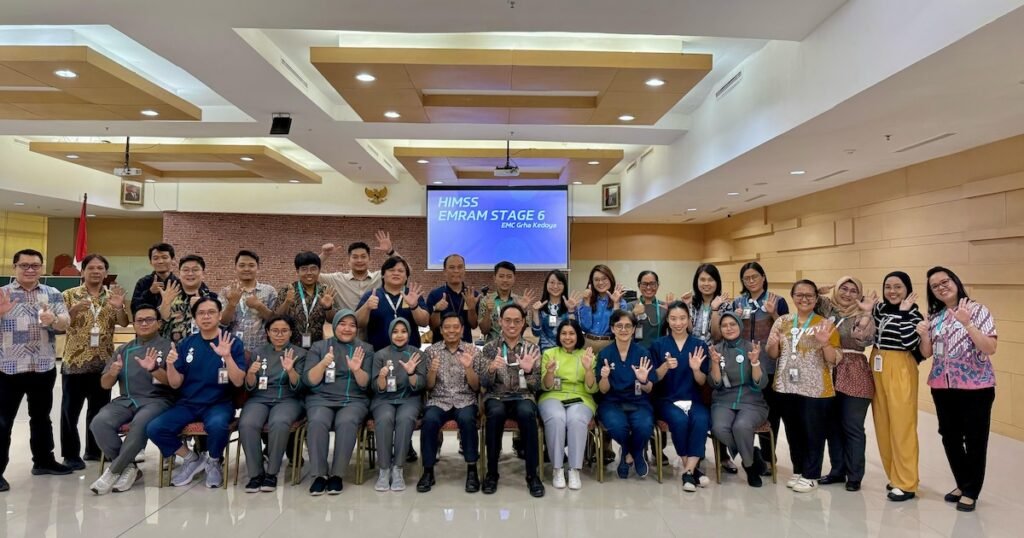EMC Grha Kedoya Hospital in West Jakarta, Indonesia, has achieved a significant milestone by being validated for Stage 6 of the HIMSS Electronic Medical Record Adoption Model (EMRAM). This validation underscores the hospital’s commitment to enhancing its digital capabilities and improving patient care.
Established in 2011, EMC Grha Kedoya is a private 200-bed hospital that forms part of the EMC Healthcare group, comprising eight private hospitals in Indonesia. With an annual patient volume of over 120,000, the hospital boasts a dedicated workforce of approximately 169 doctors, 392 nursing and other health professionals, and 800 clinical and 238 non-medical staff.
The recent global pandemic has accelerated EMC Grha Kedoya’s digital transformation, driven by the increased demand for teleconsultation, remote care, digital access to patients’ medical records, and enhanced operational efficiency. Data security concerns, the need for standardisation across EMC hospitals, and compliance with regulations related to systems interoperability have also prompted this transformation.
In July 2023, EMC Grha Kedoya successfully implemented a centralised Health Information System (HIS) across the EMC Healthcare group, integrating Internet of Medical Things (IoMT) and several other applications into the HIS. Seeking guidance for further IT development and adoption, the hospital turned to HIMSS for assistance.
Dr. Henry Andrean, director of EMC Grha Kedoya Hospital, highlighted the hospital’s meticulous preparations over 13 months to meet the Stage 6 EMRAM standards. This involved implementing a comprehensive EMR system that seamlessly integrated with other software and systems, creating a unified platform for all stakeholders. The hospital invested in cutting-edge technologies, enhanced data security measures, and provided extensive training to users to ensure smooth adoption of the new system.
During the assessment, HIMSS validators commended EMC Grha Kedoya’s rapid progress in deploying its HIS and noted the universal acceptance and adoption of the intuitive system design among users. Key features of the EMR system include automated vital signs input and an early warning system (EWS) that enhances patient monitoring and care.
The hospital’s technical and operational resilience, reinforced by robust backup systems and data protection measures, also earned praise from validators. Moving forward, EMC Grha Kedoya is preparing for a Stage 7 validation, focusing on interoperability, AI integration for clinical decision-making, and increased investment in data analytics.
Dr. Andrean emphasized the tangible benefits of adopting EMRAM standards, such as enhanced patient engagement, improved patient safety, streamlined care coordination, reduced administrative burden, and heightened data security. The hospital’s commitment to continuous improvement and digital innovation reflects its vision of becoming a smart hospital that delivers top-notch healthcare services.
In conclusion, EMC Grha Kedoya Hospital’s achievement of Stage 6 EMRAM validation signifies a significant step in its digital transformation journey. By partnering with HIMSS and embracing cutting-edge technologies, the hospital is poised to elevate the quality of care and operational efficiency, setting a benchmark for digital excellence in the healthcare industry.


